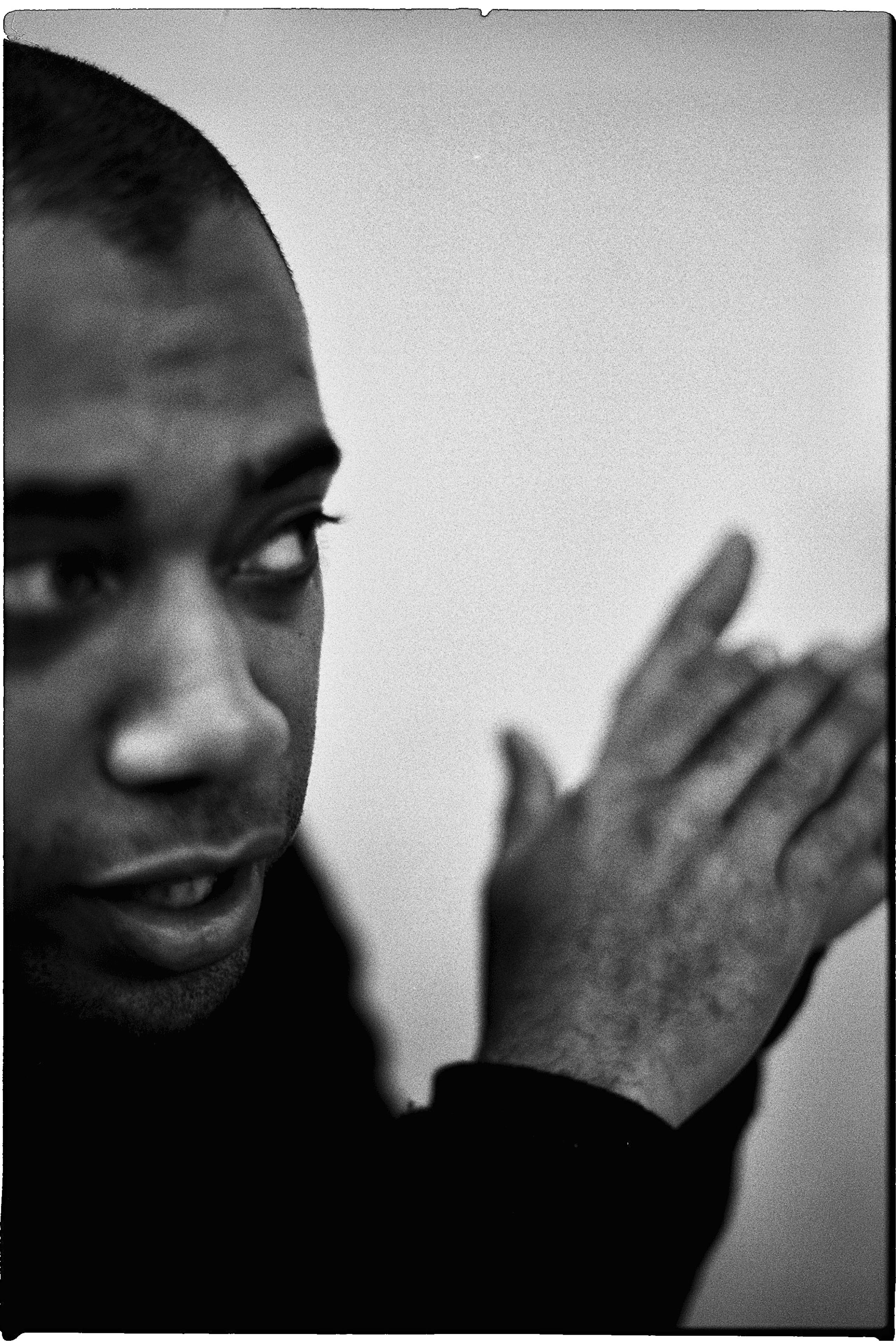Artist Feature: Carl Craig - Planet E
In an industry often fuelled by predictability, formulas, and trends, there are some artists who refuse neat categorization; who build on a sense of innate curiosity and creative instinct over convention. “I never walk into any situation knowing exactly how it's going to end up,” says the legendary producer and DJ Carl Craig – a statement that is as much a reflection of his process as it is his success.
Born and raised in Detroit, Craig rose to prominence in the late 80s, becoming a leading figure in the city’s electronic music scene as part of techno’s second generation of innovators – a wave that followed pioneering trio the Belleville Three, composed of Juan Atkins, Kevin Saunderson, and Derrick May.
Even back then, experimentation, improvisation, and a dose of healthy competition informed how Craig honed his skills. “We would all kind of go next door and listen to what the other person was doing,” he says. “Borrow a drum machine, a 909, or a synthesizer. You know, everything that was happening was intertwined, whether we were working together as individuals or as a collective.”

Throughout the course of Craig’s 40-year career, the artist has released eight LPs and six EPs, earned over 600 production credits as well as a Grammy nomination, and toured the world, establishing his Detroit Love series along the way as an homage to the city and people that raised him.
While shaping the city’s musical legacy, Craig also evolved his own sound, with an eclectic approach to making music that has seen him explore breakbeat, jazz, disco, and classical, under several aliases including 69, Paperclip People, Innerzone Orchestra and C2. In 1991, he founded the label Planet E, through which he released his own music as well as that of artists such as Kevin Saunderson, Moodymann, Kenny Larkin, and Recloose.
For this episode, we are diving into Planet E’s catalog to celebrate over 30 years of the label and its founder’s enduring influence, with a mix created by Carl Craig himself. The mix comes with an interview where Craig discusses discovering electronic gear via 80s toys, how his fascination with cars converged with a love of music, and why AI-assisted tools aren't as novel as they may seem.

When did you first realize that music was your main focus?
Carl Craig: I remember as a kid either wanting to be a race car driver or a radio DJ like the Electrifying Mojo. That's probably the point when I realized it, as both were significant dreams. I always loved cars, and I always loved music, and Mojo was a huge influence. I used to go to sleep listening to his show when I was a kid and listened to it all the way up until I started leaving Detroit to travel. And when I first came in touch with electronic gear, I wanted to know more about it directly.
How and when did you first encounter electronic gear?
Carl Craig: My first time dealing with anything that made electronic sounds was an oscillator. It was a little toy called Sound Gizmo that might have cost $30 or something. It made siren sounds, laser beam sounds, UFO sounds, stuff like that. I also had this toy that was shaped like a bazooka with headphones. I got it for Christmas. You could hear conversations from down the street with it, so I would go outside with this thing and say to my friends further away, “Let me see if I can hear you.” Those were my first experiences, really coming into sound manipulation and synthesis. And then my first time touching a synthesizer was at my cousin Doug’s. He had a Prophet-6 Synthesizer, which had multiple sounds that could be sequenced together. And the song that was popular at the time was Harold Faltermeyer’s “Axel F”, so that was the first time I learned to play a melody on a synthesizer. This was when "Axel F" came out, so around 1984.
How has your studio setup changed over the years? Are there pieces of gear that remain indispensable?
Carl Craig: The first synth that I bought was a Prophet-600. I thought about it later, like, why didn't I buy the Six-Trak Prophet? But I bought the 600. I didn't go to music college, you know, and I never came across any Moog stuff that was within my budget, like a Moog Chroma. Obviously later on, I got rid of the Prophet to buy, like, a Yamaha DX11 Synthesizer because that stuff was super hot at the time. I couldn't understand why anyone would get rid of an analogue synthesizer for a digital synthesizer, because the sound is so much different. The Prophet had this weedy sound, but it felt organic in comparison to what Yamaha was doing at the time. Even though Yamaha was electric, Rhodes was an important sound at that time. I also wanted something where I could touch every aspect of the sound easily without diving into menus.

AI is a tool in the same way that the Lindrum was a tool.
Nowadays, there is a lot of discourse on AI-assisted music tools. What is your opinion on using them?
Carl Craig: I mean, it's a tool in the same way that the Lindrum was a tool. And people got upset when the Lindrum came into play, people got upset when the Mini Moog came out. People got upset when the Yamaha DX7 came out. You know, it's always going to be that argument. I just don't like the idea that you can have AI create everything. You know, I think there needs to be humanity in it. Anybody who uses AI should put humanity in it.
So, there are ethical and cultural concerns.
Carl Craig: Yeah, but the problem that we will always face is that our ear says that sounds good. And a lot of people who don't give a damn about where the music comes from, they aren't gonna give a damn about playing AI, you know. I've said for years that music for a lot of people is just like wallpaper. You see it with Spotify now and the development behind it. I read that in China, 40% of the vocals are AI on things that people listen to daily. I’ve seen that what AI creates the best is trap music, where it's almost indistinguishable from what I've heard as trap music and what I've seen these AI apps do. So, what that said to me is that music will be even more commercial in the future, thanks to this. Most likely, from technology that major companies have already had. Now, it's got to the consumer level, but on an industrial level, it was there before. Like Delta Airlines, who has been using AI for a long time. Chrysler has been using AI for a long time. All these major corporations that are multibillion dollar corporations have been using AI. So, in my mind, you know, Warner, EMI, all these companies are like Chrysler, they're like Delta Airlines, they're like Coca Cola, and they've been using AI.
You’re on the road a lot. How do you stay balanced, both mentally and physically?
Carl Craig: Well, I always try to eat my vegetables. I mean, that's the easiest thing, not to eat healthy when you're on the road. But it's important to eat vegetables, it's important to drink water, especially when I'm playing and I got five shows lined up. I just make sure that when I'm done, I eat healthy and drink water. But the biggest health concern for being on the road is not getting caught up in a country that's going through some type of war that happens immediately after you finish the gig. And sure, there is the hearing health. I try to find enough quiet time that I can help them heal.

A key element of your touring schedule are your Detroit Love events. What was the original idea behind creating them?
Carl Craig: One part was playing with friends. Like we did with the Planet E 20th anniversary tour 2011. But Detroit Love is broader, because the range is not only people who are from Detroit, but also people who have links to Detroit, who've been cheerleaders for the music. So a lot of Detroit Love parties now feature me, Moodymann, or Stacy Pullen. But in the past, Moritz von Oswald, Luciano, Loco Dice or Mirko Loco played too.
Planet E is celebrating its 30th anniversary this year. How does that feel?
Carl Craig: Very good. Planet E is a boutique label. It’s like your local record shop, where you walk in, and you always see me behind the counter. We're always looking to give you the good top shelf that we can give musically, and I take that seriously. That's the reason why it takes me a long time to make music these days, because I want to make sure that we're always on the top shelf of what we offer.
Looking back, is there anything you miss about the early Detroit community?
Carl Craig: I wish that we had a closer camaraderie. Back then, we would all kind of go next door and listen to what the other person was doing – borrow a drum machine, a 909, or a synthesizer. You know, everything that was happening was intertwined, whether we were working together as individuals or as a collective. But there was also a lot of competition. Especially between Derrick May, Kevin Saunderson and Juan Atkins, there was a ton of competition. And I miss it both: the competition and the camaraderie.

What is your favorite non-electronic album of all time?
Carl Craig: That’s an interesting question. I love so much music that has electronics in it, but I guess I would say "Get Up With It" by Miles Davis.
If you could speak directly to a younger, 20-year-old Carl Craig entering the studio for the first time, what would you say?
Carl Craig: I would tell me to embrace all the mistakes the same way that I've already embraced them. And I would say just keep focus, and don't be distracted. Just keep doing what you're doing, because I'm here.
Any vision for your Carhartt WIP Planet E Radio show. What can we anticipate?
Carl Craig: Oh, it will be a very spontaneous decision. I work in a way that is always improvisational. I never walk into any situation knowing exactly how it's going to end up.
---
All Carl Craig pictures by Katja Ruge

